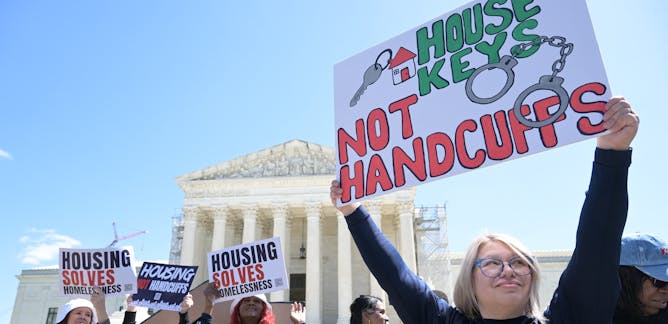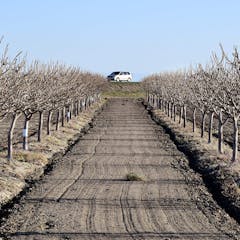
Articles on Oregon
Displaying 1 - 20 of 41 articles

In a major homelessness ruling, the Supreme Court holds that cities and municipalities can punish people for sleeping outside, even when they have nowhere else to go.

Researchers found a sharp rise in calls to US poison centers about magic mushrooms coincided with their decriminalization in several US cities and states.

Legal precedents hold that criminalizing someone for their status, such as being homeless, is cruel and unusual punishment. But what if that status leads to actions like sleeping in public spaces?

The Garden State is the only one in the country that forbids self-service gas stations − and that’s not likely to change anytime soon.

An estimated 95% of US cities provide economic development tax incentives to woo corporate investors, taking billions away from schools.

Redwoods grow in networks that house unique communities of plants and animals high in the air. They offer life lessons about adapting over time.

Alarmingly, about half the people exposed to wildfires in Washington and Oregon were those least able to afford to protect their homes, evacuate safely and recover.

The largest dam removal project is moving forward on the Klamath River in California and Oregon. Tribal nations there have fought for decades to protect native fish runs and the ecology of the river.

Colorado, Washington, Alaska and Oregon all experienced big increases in both deposits and lending shortly after legalizing marijuana for recreational use.

Maine and Oregon have enacted laws that require makers of consumer product packaging to pay for recycling or disposing of it. Will other states follow?

What kind of evidence does it require to get a widely used chemical banned? A professor of medicine and former state regulator explains how the case for chlorpyrifos as a threat to public health developed.

U.S. opportunity zones can positively impact real estate development and help local communities. But to fully realize the program’s potential, it needs reform.

More than 40 fire scientists and forest ecologists in the US and Canada teamed up to investigate why wildfires are getting more extreme. Climate change is part of the problem, but there’s more.

In principle, some portion of the shoreline is public land along virtually all US coasts. But these can sometimes overlap with private property interests, creating confusion and conflict.

The US has one of the highest groundwater use rates in the world. When wells run dry, households may opt to conserve water, find new sources or sell and move.

In an era of climate change and extreme weather, a microgrid — a self-sufficient, energy-generating distribution and control system — puts communities on the path to self-reliance.

Two environmental engineers say governments need to do more to protect people from possible water contamination after wildfires.

Debating whether climate change or forest management has caused the devastating wildfires in California, Washington and Oregon is a false choice.

Relying on incarcerated workers in emergencies such as the wildfires ravaging parts of the US is a cheap alternative for states. But what protections are there for prisoners?

How climate change and other human actions have combined to create conditions for explosive wildfires in California, Oregon and Washington state.
